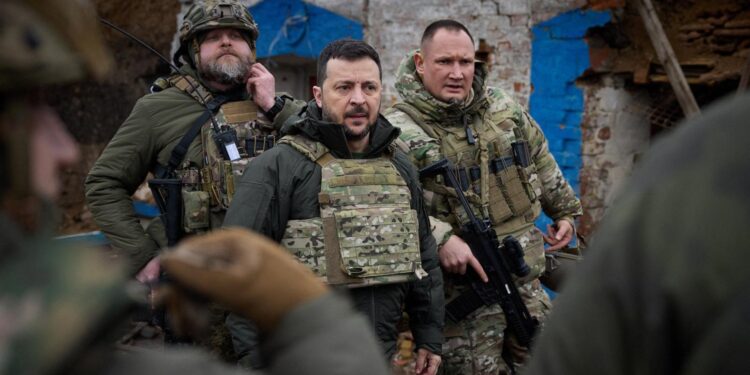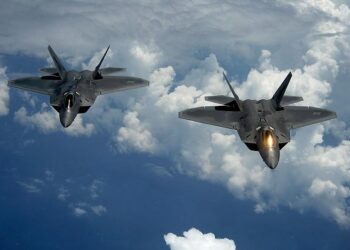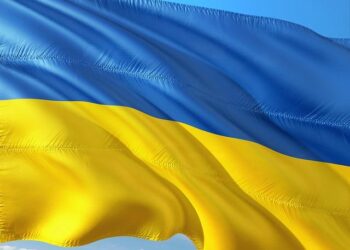Europe has taken on a significant financial burden to support Ukraine amid its ongoing conflict with Russia, a development that has escalated tensions between the parties involved. As Western nations funnel billions of euros in aid and economic assistance to Kyiv, Moscow has voiced sharp condemnation, accusing Europe of fueling the war and destabilizing regional security. This unfolding financial commitment underscores the deepening divide between Europe and Russia, while highlighting the geopolitical stakes of the protracted conflict in Ukraine.
Europe Steps Up Financial Support for Ukraine Amid Rising Conflict Costs
European nations have significantly escalated their financial commitments to support Ukraine as the conflict intensifies, reflecting a united front against Moscow’s ongoing aggression. This surge in funding covers military aid, humanitarian relief, and economic stabilization efforts designed to bolster Kyiv’s resilience amid mounting pressures. The infusion includes billions in direct assistance from the European Union budget as well as emergency funds pooled by individual member states, illustrating the continent’s growing resolve to shoulder the economic weight of the war.
The response has, however, provoked sharp condemnation from Russia, which views these measures as direct interference in its sphere of influence. Tensions have heightened diplomatically, with Moscow accusing Europe of fueling the conflict and exacerbating geopolitical instability. Below is a breakdown of Europe’s recent financial packages allocated to Ukraine:
| Type of Support | Allocated Funds (Billion ‚ā¨) | Primary Objective |
|---|---|---|
| Military Aid | 5.4 | Defensive armaments and tactical equipment |
| Humanitarian Relief | 3.2 | Food supplies, medical aid, civilian protection |
| Economic Support | 4.1 | Infrastructure repair, budget stabilization |
- Strengthened coordination through the European Peace Facility.
- Rapid disbursement mechanisms to accelerate aid delivery.
- Enhanced transparency and audit processes to ensure accountability.
Impact of Europe’s Economic Assistance on Russia’s Strategic Position
The extensive economic assistance provided by Europe to Ukraine has significantly reshaped the regional balance, placing Russia in a complex strategic position. Faced with a sustained financial commitment from European nations, Moscow finds its influence challenged not only on the battlefields but also in the economic and diplomatic arenas. This support includes a multifaceted package of financial aid, military supplies, and humanitarian resources, reflecting a unified European ambition to counteract Moscow’s advances and sustain Ukrainian resistance. The increasing infusion of European funds serves as a formidable counterweight to Russian efforts, undermining Moscow’s leverage and complicating its geopolitical calculations.
Key ramifications include:
- Economic strain on Russia: Sanctions coupled with Europe’s assistance to Ukraine have tightened the economic noose, targeting vital sectors like energy exports.
- Diplomatic isolation: Enhanced European cooperation has marginalized Russia on the global stage, isolating it from traditional alliances.
- Military pressure: Continuous EU-backed military aid bolsters Ukrainian defense capabilities, forcing Russia to divert resources.
| Impact Area | Short-Term Effect | Long-Term Outlook |
|---|---|---|
| Economic | Decreased export revenues | Potential for prolonged recession |
| Diplomatic | Fewer allies in Europe | Increased geopolitical isolation |
| Military | Resource diversion to frontline | Strained military effectiveness |
Calls for Enhanced Coordination Among European Nations to Sustain Aid Efforts
European leaders have underscored the urgent need to streamline their collective response as the conflict in Ukraine escalates, threatening the sustainability of ongoing aid programs. With mounting financial pressures, experts warn that fragmented efforts could undermine the effectiveness of support distributed across the region. Key policymakers advocate for a unified strategy that harmonizes budget allocations, logistical frameworks, and diplomatic channels to ensure continued assistance without overstretching national resources.
Critical areas identified for enhanced coordination include:
- Pooling of financial resources to maximize impact and reduce duplication
- Standardizing procurement and delivery mechanisms for humanitarian aid
- Joint diplomatic initiatives to maintain international backing and mitigate political tensions
- Creating rapid response teams capable of addressing emerging needs on the ground
| Coordination Pillar | Current Challenges | Proposed Solutions |
|---|---|---|
| Financial Integration | Fragmented national budgets | Establish a common funding pool |
| Logistics | Delays in aid delivery | Centralized procurement unit |
| Diplomatic Engagement | Divergent foreign policies | Regular multilateral forums |
In Retrospect
As Europe continues to shoulder the financial costs of the conflict in Ukraine, tensions with Russia are intensifying, underscoring the geopolitical stakes at play. The unfolding economic dynamics not only highlight the resilience and unity among European nations but also signal a prolonged period of discord and uncertainty in the region. How this financial burden will shape future diplomatic and military developments remains a critical question for policymakers and observers alike.
















